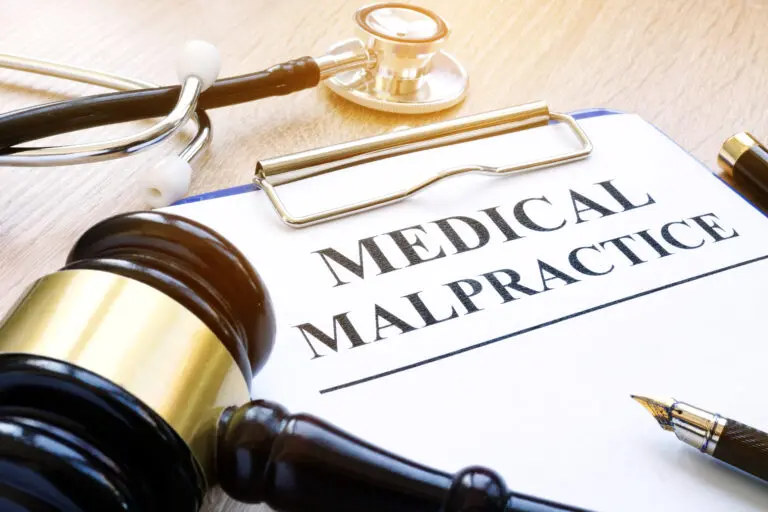Over the years, Good Samaritan laws have been put in place to protect individuals who choose to help others in emergency situations. Understanding the specifics and limitations of these laws is crucial for anyone looking to offer assistance without fear of legal repercussions. From providing aid at the scene of an accident to administering first aid in good faith, Good Samaritan laws vary by state and can be the difference between a heroic act and a legal battle.
The Origins and Evolution of Good Samaritan Laws
For centuries, the concept of the Good Samaritan has been intertwined with notions of helping others in need. The term “Good Samaritan” itself originates from a parable in the Bible where a stranger went out of his way to aid a person in distress. This altruistic notion has inspired legal principles aimed at protecting individuals who voluntarily assist others in emergencies.
Historical Perspectives
To understand the roots of Good Samaritan laws, we must explore into historical perspectives where communities valued acts of kindness and assistance towards those in distress. In ancient civilizations, such as the Roman Empire, there were laws recognizing and encouraging aid to strangers. Over time, these principles have evolved to encompass modern-day legal protections for those who render aid in good faith.
Development Across Jurisdictions
Laws governing the protection of Good Samaritans have developed differently across various jurisdictions. While some regions have specific statutes outlining the rights and responsibilities of those who provide assistance, others rely on common law principles established through court decisions. It is imperative for individuals to be aware of the laws in their respective jurisdictions to understand the extent of protection afforded to them when offering assistance in emergency situations.
This highlights the importance of knowing the legal landscape and comprender the implications of Good Samaritan laws in different regions. While these laws aim to encourage altruistic behaviors, individuals should be cautious and informed to ensure they are protected when extending a helping hand.
Understanding the Scope of Good Samaritan Protections
Who Is Protected Under These Laws?
Some people may wonder who is covered under Good Samaritan laws. Generally, these laws protect individuals who come to the aid of others in emergency situations from legal liability if unintentional harm occurs while providing assistance. Good Samaritan laws are designed to encourage bystanders to act in good faith without fear of being sued for their efforts to help. These laws vary by state and may have specific requirements to qualify for protection.
What Actions Are Covered?
For those wondering what actions are covered under Good Samaritan laws, it typically includes providing emergency medical care, such as administering CPR or first aid, without expectation of payment. Good Samaritan laws also extend to situations like rescuing someone from a car crash, intervening in cases of violence, or defending someone from harm. These laws do not generally protect individuals who provide care within the scope of their professional duties, as they are expected to act with a certain standard of care in their professional capacity.
Under Good Samaritan laws, individuals are protected when they act in good faith to help others in distress, as long as their actions are not reckless or malicious. The laws aim to shield volunteers and bystanders from legal consequences when they are trying to assist in emergencies.
Limitations and Exclusions
Your actions as a good Samaritan, while admirable, may not always be fully protected under Good Samaritan laws. It is important to understand the limitations and exclusions that exist to prevent any misconceptions about the extent of legal protections you may have.
Exceptions to Protection
Exclusions: Good Samaritan laws typically do not provide protection if the individual rendering aid is deemed to have acted with gross negligence or was under the influence of drugs or alcohol. In such cases, the individual may be held liable for any harm caused during the rescue attempt.
Situations Leading to Liability
Liability: Although Good Samaritan laws offer some protection, it is important to be aware of situations that can still lead to liability. If a bystander chooses to provide medical assistance beyond their level of training or expertise, they could be held accountable for any resulting injuries or harm.
Exceptions: It is crucial to remember that Good Samaritan laws vary from state to state and country to country. Understanding the specific laws in your jurisdiction is key to knowing the extent of protection you have when rendering aid in an emergency situation.
Variations in Good Samaritan Laws by Region
State-Specific Laws in the United States
To navigate the complexities of Good Samaritan laws effectively, individuals must be aware of the variations that exist from state to state within the United States. While all states have some form of Good Samaritan laws in place, the specifics can vary significantly. For instance, some states do not have laws that protect individuals from liability when rendering aid, while others have robust protections in place. Understanding the nuances of these laws is crucial for those who are inclined to help others in emergency situations.
International Approaches to Altruistic Action Protections
Protections for altruistic actions extend beyond the borders of the United States, with various countries enacting their own versions of Good Samaritan laws. These laws aim to encourage individuals to assist others in need without fear of legal repercussions, which can enhance community well-being and safety. However, the extent of these protections can differ widely, with some jurisdictions offering more comprehensive coverage than others.
International approaches to altruistic action protections underscore the importance of fostering a culture of compassion and aid in society. By implementing laws that shield individuals from liability when acting in good faith to help others, communities can promote a sense of collective responsibility and care. Understanding the diverse legal frameworks that exist globally can shed light on best practices and areas for improvement in altruistic action protections.
The Impact of Good Samaritan Laws on Public Behavior
Encouraging Altruism Among Bystanders
Altruism plays a crucial role in shaping public behavior when it comes to assisting those in need. A pesar de the fear of legal repercussions, Good Samaritan laws have been instrumental in encouraging bystanders to step in and offer aid during emergencies without hesitation. Knowing that they are protected by law if they act in good faith has empowered individuals to take swift action in critical situations, potentially saving lives in the process.
Misconceptions and Public Awareness
Despite the positive impact of Good Samaritan laws, there are still misconceptions that persist among the general public regarding their scope and limitations. Impacto, educating the community about the protections these laws afford and clarifying any misunderstandings can further enhance public awareness and promote a culture of proactive assistance.
Another important aspect to consider is the need for ongoing campaigns and initiatives to raise awareness about Good Samaritan laws and their implications. Public education is key to dispelling myths and ensuring that individuals feel confident in taking action during emergencies without the fear of legal reprisal.
Legal Procedures and Proving Good Samaritan Status
Many individuals who find themselves in the position of a Good Samaritan may wonder about the legal procedures involved in proving their status as a Good Samaritan. Understanding the litigation process is crucial in navigating the intricacies of good Samaritan laws and ensuring legal protection for their altruistic actions.
The Litigation Process
Proving your status as a Good Samaritan in a legal setting can be a complex process. This typically involves providing evidence to demonstrate that you acted in good faith to help someone in an emergency situation. It is vital to have a clear understanding of the legal requirements and procedures involved in establishing your Good Samaritan status.
Evidence and Burden of Proof
With regards to evidence and burden of proof in Good Samaritan cases, the individual claiming Good Samaritan status must provide credible evidence to support their actions. This can include eyewitness testimonies, medical records, and any documentation related to the incident. The burden of proof lies with the individual claiming Good Samaritan status to demonstrate that they acted within the scope of the law.
The process of proving Good Samaritan status can vary depending on the jurisdiction and the specific circumstances of the case. It is important to consult with a legal professional who specializes in these matters to ensure that you have all the necessary evidence and documentation to protect your rights as a Good Samaritan.
Para terminar
Taking this into account, Good Samaritan laws play a critical role in providing legal protections for individuals who selflessly step in to help others in emergency situations. These laws vary by state, so it is important to familiarize oneself with the specific provisions in the region where one resides or frequently visits. Understanding the nuances of these laws can empower individuals to confidently assist those in need without fear of facing legal repercussions.
After all is said and done, navigating the intricacies of Good Samaritan laws requires a careful examination of the legal protections afforded to altruistic actions. By being aware of the scope and limitations of these laws, individuals can act decisively and compassionately when faced with emergencies, knowing that their good intentions are backed by legal support. Ultimately, these laws serve to foster a culture of community responsibility and encourage individuals to come to the aid of others in times of need.









